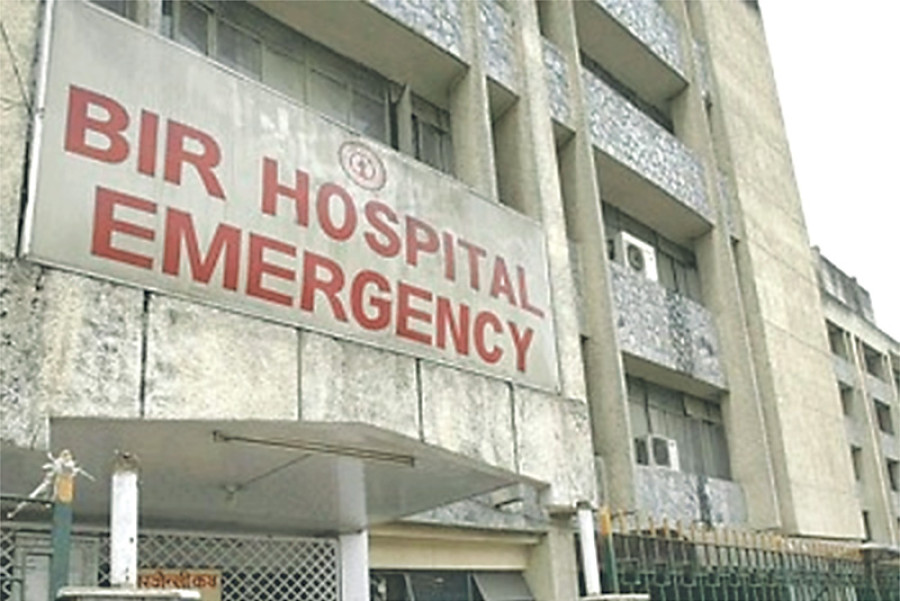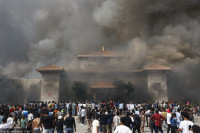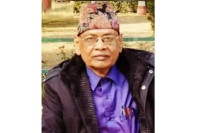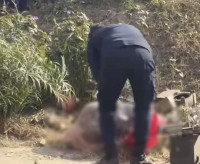Valley
Bir Hospital to have own pharmacy in a week
Bir Hospital, the country’s oldest health facility, is preparing to establish its own pharmacy in a week to provide drugs and health equipment in subsidised rates, a move that is expected to reduce the poor’s cost of health care.
Manish Gautam
Bir Hospital, the country’s oldest health facility, is preparing to establish its own pharmacy in a week to provide drugs and health equipment in subsidised rates, a move that is expected to reduce the poor’s cost of health care.
The hospital administration took a decision to this effect on Sunday. The Health Ministry has already decided to provide Rs3 million as seed money for its establishment.
“We’ve been informed that the ministry has allocated the amount but we are yet to get it. Still, our preparations for the pharmacy will be over in a week,” said Dr Bhupendra Basnet, the Bir Hospital director.
To help establish the drug stores where medicines are available at subsidised rates, the ministry has allocated over Rs300 million to various central and district-level hospitals.
Since Bir Hospital receives patients referred from across the country, its OPD serves over 3,000 patients a day while there are more patients who buy drugs from the private stores nearby.
Opening up the hospital pharmacies has been a major agenda of Health Minister Gagan Thapa, who after a month of joining office three months ago had announced the seed money for establishing the pharmacies. The concept of on-premises pharmacy was introduced in the country by the Gangalal Heart Centre and later the Manmohan Cardiothoracic Vascular and Transplant Centre at the Tribhuvan University Teaching Hospital and Patan Hospital too have adopted the policy.
Examples from the Manmohan Centre show that the drugs can be purchased in a dramatically cheaper rate and in many cases the prices are as low as 50 percent of the maximum retail price (MRP). For instance, antibiotic Amoxicillin has an MRP of Rs8 while it can be available for around Rs5 in the hospital pharmacy. Similarly, commonly used Ceftriaxone injection costs Rs90 while it can be purchased for Rs60. The Amlodipine drug used to treat high blood pressure costs Rs5 at a general drugstore while a hospital pharmacy charges only Rs2.6 for it.
Until a year ago, there was a pharmacy inside the Bir Hospital rented out to a
private firm that paid around Rs1 million per month. While this pharmacy has now been removed,
there are still seven other pharmacies located outside the hospital premises
which pay up to Rs800,000 per month in rent. Apart from hefty commissions paid by pharmaceutical companies to officials and doctors, hospitals make money from the rooms rented out to the private pharmacies.
Given the high rent, businessmen tend to accrue profits by selling the drugs in exorbitant rates adding to the woes of commoners. This is appalling especially in the case of Bir Hospital where a majority of the people referred for further treatment come from poor families and they face more hardships purchasing the drugs.




 7.12°C Kathmandu
7.12°C Kathmandu











